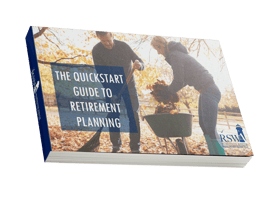The U.S. government now owns shares in private companies Intel and U.S. Steel-Nippon, plus potential revenue-sharing arrangements with chip companies Nvidia and AMD. Some have complained that this is un-American, but that is not true. It was a common practice in the 19th century. But historical examples suggest that such interventions often resulted in misallocation of capital, corruption, and poor returns for governments that tend to buy high and sell low. Intel has now warned investors that future earnings are diluted since the U.S. government was granted shares for a discounted price and shareholders had no say in the transaction. Nvidia also issued a warning to its investors in the most recent company filing: “Any request for a percentage of the revenue by the USG may subject us to litigation, increase our costs, and harm our competitive position and benefit competitors that are not subject to such arrangements.” Finance.Yahoo
In more recent decades, the U.S. government has privately financed companies, such as Chrysler in the 80’s, and GM, Chrysler, and some banks during the Great Financial Crisis in 2008-2009. But those interventions were emergencies of failing companies that could have huge potential negative impacts on unemployment, with a vacuum in critical industries. Those scenarios are much different than the recent government transactions.
The question of government ownership isn’t that it is un-American, but why would the government revive a practice that was found to be unproductive, uncompetitive, and create the potential for future corruption? Investors will have to watch to see if or how U.S. government ownership is expanded into private companies and how it may affect earnings. WSJ - Trump’s Deals With Companies Aren’t Un-American. That’s the Problem. CNBC - Sen. Rand Paul calls Trump stake in Intel 'a step towards socialism'
Legal Uncertainty for Tariffs: A federal appeals court struck down the tariffs that President Trump has imposed across the board for all imports. The case is almost certain to end up in the Supreme Court, and if it should be held up, the tariffs would go away (for now) and companies could be in line to get a refund on any tariffs they absorbed, which could also end up in the courts. In short, the tariff situation will probably continue to add uncertainty to companies' near-future business plans. Axios
Jobs Still Softening: U.S. job openings fell by 176,000 in July to 7.18 million, below expectations, signaling a cooling labor market. Hiring inched up by 41,000 to 5.31 million, while layoffs rose slightly to 1.81 million. Economists point to uncertainty from new tariffs and tighter immigration enforcement, which have dampened labor supply and hiring. Nonfarm payrolls are projected to add only 75,000 jobs in August, after July’s 73,000. The three-month average job gain has slowed to 35,000, sharply lower than 123,000 during the same period last year. The unemployment rate is expected to edge up to 4.3% from 4.2%. With labor demand weakening, Federal Reserve Chair Jerome Powell indicated the Fed may consider cutting rates at its September 16–17 meeting, though inflation concerns could interfere. Reuters
Financial Planning/Investment Strategy Corner:
“Revenge” Savings: After the pandemic kept people home, many consumers splurged on travel and experiences they had missed. This surge, often called “revenge spending,” has now faded and given way to the opposite trend— “revenge saving.” Americans are saving more not only because they feel they’ve had their fun, but also due to concerns about rising prices and slower job growth. Some call this “vibe-based” budgeting, since saving decisions are often influenced by feelings of financial security.
As planners, we strongly encourage emergency savings accounts, which can provide peace of mind when the economic “vibe” is uncertain. We also support systematic saving for all financial goals, including emergencies. If you’ve been consistently saving, you don’t have to scramble to catch up when the economy wobbles—you’re already prepared. The right size for an emergency fund varies by person, depending on job stability, income, and financial needs. If you’d like to review your emergency savings, please reach out to your advisor. CNBC – How to Get Started With ‘Revenge Savings’
Quick Hits:
- Is it time to ditch the bucket list? BBC News
- Analysis on billionaires in the U.S., where they live, how old they are (20s to 104!), and their industries or if they inherited their wealth: WSJ
- States gaining the most billionaires from 2015-2025: Visual Capitalist
- What happens when you reduce/eliminate ultra-processed foods? VeryWellHealth WSJ
- In the wake of the devastating Texas floods, volunteers discover 115-million-year-old dinosaur tracks: Smithsonian
- What you need to know about wearing a weighted vest for working out: AP News
Interview with an icon: Reed Hastings built a whole new industry with Netflix, taking the company from mailing DVDs to streaming, to producing, and now it’s in almost every corner of the globe. Listening to this interview is great for those running a company to learn how he did it, but I also found it incredibly insightful in viewing how the world works today. Hastings believes many institutions today, such as companies, schools, etc., are still structured from the manufacturing/industrial age instead of the innovation world we now live in, and Netflix was built with this new paradigm in mind. An interesting listen, as is the famous 100+ page deck Netflix made public regarding its culture. The Knowledge Project Podcast – Reed Hastings Famous Netflix Culture Deck – 2009
Quote: “Stone Age. Bronze Age. Iron Age. We define entire epics of humanity by the technology they use. In fact, technology has been the story of human progress from as long back as we know. In 100 years, people will look back on now and say, ‘That was the Internet Age.’ And computers will be seen as a mere ingredient to the Internet Age.” Reed Hastings
Thank you for reading RSWA Financial Advisor Insights! We welcome feedback, and please forward this to a friend! Be well, take care, and stay safe!
